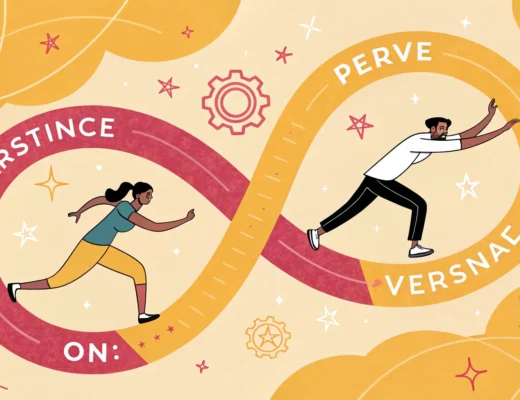Key Takeaways
- The average salary for firefighters in the U.S. is around $45,563, which is lower than many might expect for such a dangerous job.
- Firefighter pay can vary significantly by location, with some states offering higher salaries than others.
- Many firefighters face financial struggles, especially those in entry-level positions earning as little as $9.69 an hour.
- Political decisions often influence firefighter salaries and pension plans, leading to ongoing challenges in their compensation.
- Community support and advocacy are essential for improving firefighter pay and recognizing their contributions.
Understanding the Financial Struggles of Firefighters
The Reality Behind Firefighter Salaries
You know, it’s kind of wild when you think about it. Firefighters run into burning buildings, save lives, and what do they get paid? Not much. The average salary for a firefighter in the U.S. is around $45,563. That’s not a lot when you consider the risks they take every day. Some folks might think firefighters make a ton of money, but that’s not really the case. Sure, if you’re in a big city or have been on the job for years, you might earn more. But for most, it’s not a six-figure gig.Comparing Firefighter Pay to Other Professions
Let’s break it down a bit. Imagine working a job where your starting pay is about the same as flipping burgers at a fast-food joint. Yep, entry-level firefighters can earn as little as $9.69 an hour. Compare that to other jobs with less risk, and it feels off. Even a McDonald’s worker can make around $9 an hour. It’s like, “Hey, these guys are saving lives, right?”The Impact of Low Wages on Firefighter Morale
Now, think about how this pay affects their mood. When you’re busting your back, risking your neck, and still can’t make ends meet, it’s tough. Low pay can make firefighters feel underappreciated. Some even take second jobs to support their families. It’s a lot of stress, and it can really hit their morale hard. They love their jobs, sure, but everyone wants to feel valued, you know?The Role of Politics in Firefighter Compensation
You know, politics play a huge role in how much firefighters get paid. It’s kinda wild, but decisions made by people in suits, sitting far away in fancy offices, can really impact the paycheck of someone risking their life every day. Sometimes, it feels like we’re just pawns in a bigger game. Politicians decide the budget, and if they don’t see firefighting as a priority, well, salaries don’t go up. It’s frustrating, really. Pensions are a big deal for firefighters. After years of service, you’d think they’d be set for retirement, right? But nope, it’s not that simple. There’s always some political debate over pensions. Some folks think firefighters get too much, while others argue they deserve more for the risks they take. It’s a constant tug-of-war, and honestly, it’s exhausting. There are efforts to make things better, though. Advocacy groups and some politicians are pushing for higher pay and better benefits. They’re trying to get laws passed that would help firefighters earn a decent living. It’s not easy, but there’s hope. With enough public support, things might change for the better. We just need more people to speak up and recognize the value of what firefighters do.The Hidden Costs of Being a Firefighter
Physical and Mental Challenges
Being a firefighter isn’t just about putting out fires. It’s a job that takes a toll on both the body and the mind. The physical demands are intense; you’re constantly on your feet, carrying heavy equipment, and working in high-stress situations. Over time, these physical challenges can lead to injuries and long-term health issues. But it’s not just the physical side that’s tough. The mental strain can be just as heavy. Seeing people at their worst moments, dealing with life-and-death situations, and the pressure to always perform can weigh heavily on a person’s mental health. It’s a job that requires not just strength, but resilience.Balancing Work and Personal Life
Firefighting isn’t your typical 9-to-5 job. Shifts can be long, often requiring overnight stays at the station. This means missing out on family events, holidays, and even just a regular night at home. Balancing work and personal life becomes a juggling act. For many, the job is more than just work; it’s a calling. But that doesn’t make it any easier to be away from loved ones. The time demands can strain relationships and make it hard to find that work-life balance.The Cost of Living vs. Firefighter Pay
Despite the critical role firefighters play in keeping communities safe, their pay often doesn’t reflect the importance of their work. In many places, firefighter salaries are just enough to get by. When you consider the cost of living, especially in big cities, it’s clear that the pay doesn’t always match up. Many firefighters find themselves working extra jobs to make ends meet. It’s a tough reality that the people who risk their lives every day often struggle to support their own families. The financial strain adds another layer of stress to an already demanding job.Community Value vs. Financial Compensation
So, I’ve been thinking about how firefighters are like the superheroes of our neighborhoods. They don’t just put out fires; they do so much more. Like, they teach kids about fire safety, help install car seats, and even run charity events. It’s like they’re always doing something for the community, even when they’re not on the clock. Firefighters are role models, just like athletes or celebrities, but without the flashy paychecks. Now, let’s talk numbers. Firefighters save more than just lives; they save a ton of money for communities by protecting properties. Imagine if a big fire hit a commercial area and there were no firefighters. The losses would be in the millions! In fact, a study found that in just one year, a fire department’s efforts saved a state from losing $650 million in gross state product. That’s a lot of dough! But here’s the kicker: all this amazing work often goes unnoticed when it’s time to talk pay. People don’t always see the value firefighters bring, beyond just putting out fires. It’s like their community contributions are hidden in plain sight. Maybe if more folks understood how much firefighters do, there’d be more support for better pay. It’s kind of like the FIRE movement where people aim for financial independence; maybe firefighters need a similar push for fair compensation.Exploring Solutions to Improve Firefighter Pay
Advocacy and Awareness Efforts
I’ve seen firsthand how important it is to speak up for what matters. Advocacy is key when it comes to improving firefighter pay. We need to raise awareness about the challenges firefighters face. It’s not just about putting out fires; it’s about ensuring they can live comfortably and support their families. Here’s what we can do:- Community Engagement: Talk to your local representatives about the importance of fair pay for firefighters.
- Social Media Campaigns: Use platforms like Facebook and Twitter to spread the word and gather support.
- Public Meetings: Attend town hall meetings to voice concerns and share stories about the real-life struggles firefighters face.
Potential Policy Changes
Policy changes can make a big difference, but they often require a lot of pushing. We need to look at:- Minimum Wage Laws: Adjusting these laws could help ensure firefighters earn a living wage.
- Budget Allocations: More funds should be directed towards firefighter salaries in local and state budgets.
- Pension Protections: Strengthening pension plans to secure financial futures for retired firefighters.
The Role of Public Support
Public support can be a game-changer. When the community stands behind firefighters, it sends a strong message to policymakers. Here’s how you can help:- Volunteer: Offer your time to support local fire departments during fundraising events.
- Donate: Contribute to causes that fight for better pay and working conditions for firefighters.
- Educate: Share information about the value firefighters bring to the community and why they deserve fair compensation.
Comparing Firefighter Salaries Across the United States
I’ve always been curious about how much firefighters make across different states. Turns out, it’s quite a range. California tops the list with an average pay of about $87,890 a year. Makes sense, right? With all those wildfires, they need to pay their firefighters well. Then you’ve got New Jersey at $84,850, Washington at $83,630, New York at $80,950, and Illinois at $75,710. Now, let’s talk about where you live. Urban firefighters usually earn more than those in rural areas. Why? Cities have more fires and bigger budgets. But rural areas? Not so much. It’s like comparing apples to oranges. I think it’s a bit unfair, but that’s how it is. And here’s something interesting. Not all firefighters earn the same, even in the same state. Some roles need more training, like paramedic firefighters or chiefs. Paramedic firefighters can make up to $120,828 a year, but they need to go through NREMT recertification regularly! Chiefs and captains aren’t far behind either. So, if you’re thinking about being a firefighter, maybe aim for one of those roles. More training, sure, but a bigger paycheck too.Frequently Asked Questions
Why are firefighter salaries so low?
Firefighter salaries tend to be low due to factors like budget constraints in local governments and the seasonal nature of some firefighting jobs. Many firefighters start at lower wages and only experienced ones earn higher salaries.
How does firefighter pay compare to other jobs?
Firefighters often earn less than many other professionals, even those in similar roles. For example, entry-level firefighters can earn as little as $9.69 an hour, which is similar to fast-food workers.
What challenges do firefighters face besides low pay?
Firefighters deal with physical and mental stress, long hours, and the need to balance their work with personal life. They also face high living costs in many areas.
What is the impact of low wages on firefighters?
Low wages can lead to low morale among firefighters, causing some to leave the profession. This can affect the quality of fire services in the community.
Are there efforts to improve firefighter pay?
Yes, there are advocacy groups and community efforts pushing for better pay and benefits for firefighters. Some political efforts are also aimed at increasing their compensation.
How do firefighter salaries vary across the U.S.?
Firefighter salaries can differ greatly depending on the state and the type of firefighting job. For instance, firefighters in California tend to earn more than those in rural areas.







